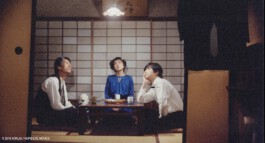
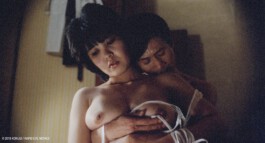
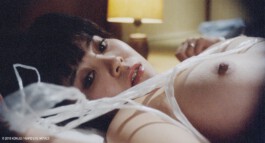


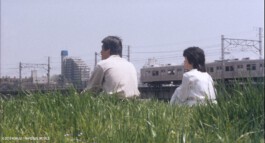
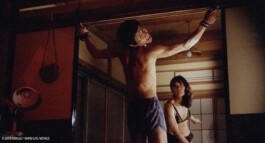
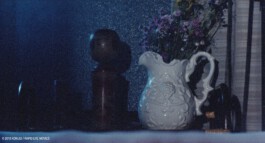
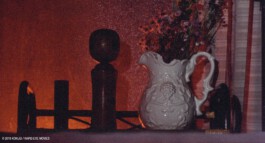


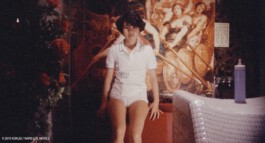
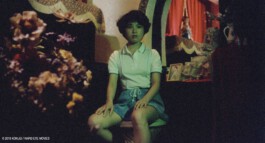
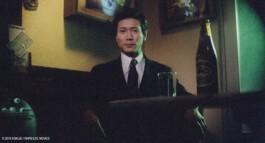
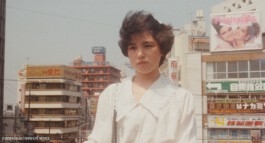
Ein Film von Suo Masayuki
1984 Japan, 63 min.
Mit Usagi Asô, Hakuhiko Fukano, Kurara Hanayama, Raibu Hara, Kaoru Kaze
The debut film of the future director of the international hit comedy Shall we Dance (1996) follows the antics of the five members of model middle-class Mamiya family after the latest arrival into the household, the voluptuous new bride Yuriko of over-sexed eldest son Kôichi. Younger brother Kazuo sees his new sister-in-law as a possible source of release from study stress, while his sister Akiko, after donning her Office Lady uniform every morning and slipping out of her family’s eyesight with a cheery smile, heads straight to a workplace that offers much more in the way of financial incentive than the office. Meanwhile, their father remains a silent fixture behind his newspaper, nodding sagely at the head of the table, while waxing wistfully about the owner of the local bar who reminds him of his dead wife.
Shooting from his own script, Suo’s only ever pink film is a bawdy pastiche of the works of Ozu Yasujirô, presenting the members of this far-from-typical family through idiosyncratic editing and compositional style of the Grand Master of the Japanese home drama. The results are amongst the wittiest and entertaining in the entire history of pinku eiga.















Ein Film von Suo Masayuki
1984 Japan, 63 min.
Mit Usagi Asô, Hakuhiko Fukano, Kurara Hanayama, Raibu Hara, Kaoru Kaze
The debut film of the future director of the international hit comedy Shall we Dance (1996) follows the antics of the five members of model middle-class Mamiya family after the latest arrival into the household, the voluptuous new bride Yuriko of over-sexed eldest son Kôichi. Younger brother Kazuo sees his new sister-in-law as a possible source of release from study stress, while his sister Akiko, after donning her Office Lady uniform every morning and slipping out of her family’s eyesight with a cheery smile, heads straight to a workplace that offers much more in the way of financial incentive than the office. Meanwhile, their father remains a silent fixture behind his newspaper, nodding sagely at the head of the table, while waxing wistfully about the owner of the local bar who reminds him of his dead wife.
Shooting from his own script, Suo’s only ever pink film is a bawdy pastiche of the works of Ozu Yasujirô, presenting the members of this far-from-typical family through idiosyncratic editing and compositional style of the Grand Master of the Japanese home drama. The results are amongst the wittiest and entertaining in the entire history of pinku eiga.